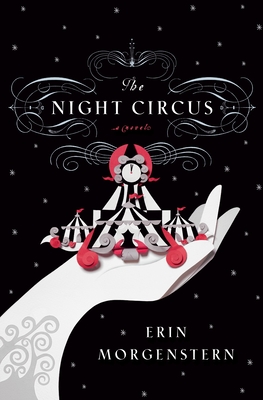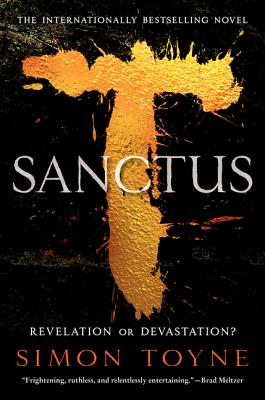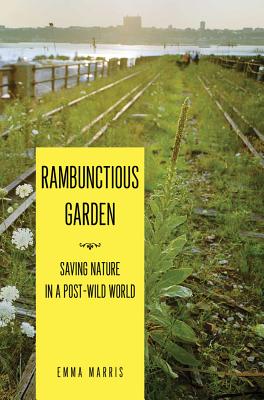Thoughts on books, reading and publishing from the staff and friends of the Tattered Cover Book Store.
Friday, September 16, 2011
Thursday, September 15, 2011
One of this Fall's Most Anticipated Titles, and Pete Explains Why
 |
| The Night Circus |
The circus arrives without warning. No announcements precede it. It is simply there, when yesterday it was not. Within the black-and-white striped canvas tents is an utterly unique experience full of breathtaking amazements. It is called Le Cirque des Rêves, and it is only open at night.
But behind the scenes, a fierce competition is underway—a duel between two young magicians, Celia and Marco, who have been trained since childhood expressly for this purpose by their mercurial instructors.
Unbeknownst to them, this is a game in which only one can be left standing, and the circus is but the stage for a remarkable battle of imagination and will. Despite themselves, however, Celia and Marco tumble headfirst into love—a deep, magical love that makes the lights flicker and the room grow warm whenever they so much as brush hands.
True love or not, the game must play out, and the fates of everyone involved, from the cast of extraordinary circus performers to the patrons, hang in the balance, suspended as precariously as the daring acrobats overhead.
Written in rich, seductive prose, this spell-casting novel is a feast for the senses and the heart.
But behind the scenes, a fierce competition is underway—a duel between two young magicians, Celia and Marco, who have been trained since childhood expressly for this purpose by their mercurial instructors.
Unbeknownst to them, this is a game in which only one can be left standing, and the circus is but the stage for a remarkable battle of imagination and will. Despite themselves, however, Celia and Marco tumble headfirst into love—a deep, magical love that makes the lights flicker and the room grow warm whenever they so much as brush hands.
True love or not, the game must play out, and the fates of everyone involved, from the cast of extraordinary circus performers to the patrons, hang in the balance, suspended as precariously as the daring acrobats overhead.
Written in rich, seductive prose, this spell-casting novel is a feast for the senses and the heart.
Pete says:
"It might be daytime when you first notice a mysterious circus has arrived in your town, but the gates will remain locked until nightfall. And then, well, you're in for an after hours visual feast. There are sprawling tents done in all black and white, a bonfire of unimaginable colors, human contortion, fortune telling, and mirrors upon mirrors until you've lost track of what is real and what is not.
But unknown to the patrons and most of the performers, this friendly circus may not be all that it seems. For within all the music and magic a fierce battle is about to take place. Celia, daughter of Prospero the Enchanter, must test her illusionist skills against the equally talented Marco, protege of Alexander, the man in the gray suit. Celia and Marco have been bred since childhood to do battle, but are woefully ignorant of the stakes. There can only be one winner in this contest; the other must die. Complications arise when Celia and Marco fall desperately in love. Naturally they want out of the contest but are told by higher powers that this cannot be done. One lives, one dies.
Has you're interest been piqued yet? If so, step inside the big tent. P.T. Barnum once displayed a sign that read 'This way to the egress,' fooling some into believing an egress was something exotic to see rather than merely an exit. Trust me, you won't want to exit this circus until the very last sentence.
My own fortune telling skills are very limited. If I call for blue skies you'd better grab an umbrella. But in the spirit of the book I gaze into my crystal ball and predict that one day Natalie Portman will play the role of Celia Bowen in the movie version of The Night Circus. The role of Marco escapes me and perhaps he is being evasive on purpose. The battle continues and just like that...the circus is gone."
My own fortune telling skills are very limited. If I call for blue skies you'd better grab an umbrella. But in the spirit of the book I gaze into my crystal ball and predict that one day Natalie Portman will play the role of Celia Bowen in the movie version of The Night Circus. The role of Marco escapes me and perhaps he is being evasive on purpose. The battle continues and just like that...the circus is gone."
One man’s sacrifice shocks the world . . .
One woman’s courage threatens a conspiracy as old as humankind . . .
And some will do anything—anything—to keep their secrets in the dark.
A man climbs a cliff face in the oldest inhabited place on earth, a mountain known as the Citadel, a Vatican-like city-state that towers above the city of Ruin in modern-day Turkey. But this is no ordinary ascent. It is a dangerous, symbolic act. And thanks to the media, it is an event witnessed by the entire world.
Few people understand its consequence. But for foundation worker Kathryn Mann and a handful of others, it’s evidence that a revolution is at hand. For the Sancti, the cowled and secretive monks who live inside the Citadel, it could mean the end of everything they have built. They will stop at nothing to keep what is theirs, and they will break every law in every country and even kill to hold it fast. For American reporter Liv Adamsen, it spurs the memory of the beloved brother she lost years before, setting her on a journey across the world and into the heart of her own identity.
There, she will make a discovery so shocking that it will change everything. . . .
Read an interview with the author about the book.
One woman’s courage threatens a conspiracy as old as humankind . . .
And some will do anything—anything—to keep their secrets in the dark.
A man climbs a cliff face in the oldest inhabited place on earth, a mountain known as the Citadel, a Vatican-like city-state that towers above the city of Ruin in modern-day Turkey. But this is no ordinary ascent. It is a dangerous, symbolic act. And thanks to the media, it is an event witnessed by the entire world.
Few people understand its consequence. But for foundation worker Kathryn Mann and a handful of others, it’s evidence that a revolution is at hand. For the Sancti, the cowled and secretive monks who live inside the Citadel, it could mean the end of everything they have built. They will stop at nothing to keep what is theirs, and they will break every law in every country and even kill to hold it fast. For American reporter Liv Adamsen, it spurs the memory of the beloved brother she lost years before, setting her on a journey across the world and into the heart of her own identity.
There, she will make a discovery so shocking that it will change everything. . . .
Read an interview with the author about the book.
Wednesday, September 14, 2011
April's a Huge Fan of This Writer and This Book
Told in the first person, as a narrative of Lilly Bere's life over seventeen days, On Canaan's Side opens as she mourns the loss of her grandson, Bill. Lilly revisits her past, going back to the moment she was forced to flee Ireland, at the end of the First World War, and continues her tale in America, a world filled with both hope and danger. At once epic and intimate, Lilly's story unfolds as she tries to make sense of the sorrows and troubles of her life and of the people whose lives she has touched. Spanning nearly seven decades, from the Great Depression to World War II and the Vietnam War, it is the heartbreaking story of a woman whose capability to love is enormous, and whose compassion, even for those who have wronged her, is astonishing.
April says:
"To describe Barry's grasp of the English language as coming from the gods isn't as over the top as one might think. His sentences, turns of phrase, and just word choice in general deserve to be highlighted, ruminated on, discussed in large groups, and just adored. (I'm a fan; can you tell?)
The basic story of On Canaan's Side is easy enough to breakdown: Lily Bere has just lost her grandson. In an effort to gain perspective and to get her decades of life off her chest, she begins a journal. A journal that only lasts for seventeen days, but covers nearly seven decades. Lily chronicles her childhood in Ireland as the country slips from rebellious state to independence, her forced exodus from her home to a country that is impossible for her to know, and the lives of loved ones this new country pulls away from her.
The novel is intense and moving despite its brevity and simplicity. Lily is a trustworthy and redeemable character who makes you want to lie down and mourn with her. To celebrate her strengths and weaknesses.
Read this with a highlighter. Or with someone who will appreciate your stopping and reading passages aloud."
A paradigm shift is roiling the environmental world. For decades people have unquestioningly accepted the idea that our goal is to preserve nature in its pristine, pre-human state. But many scientists have come to see this as an outdated dream that thwarts bold new plans to save the environment and prevents us from having a fuller relationship with nature. Humans have changed the landscapes they inhabit since prehistory, and climate change means even the remotest places now bear the fingerprints of humanity. Emma Marris argues convincingly that it is time to look forward and create the "rambunctious garden," a hybrid of wild nature and human management.
In this optimistic book, readers meet leading scientists and environmentalists and visit imaginary Edens, designer ecosystems, and Pleistocene parks. Marris describes innovative conservation approaches, including rewilding, assisted migration, and the embrace of so-called novel ecosystems.
Rambunctious Garden is short on gloom and long on interesting theories and fascinating narratives, all of which bring home the idea that we must give up our romantic notions of pristine wilderness and replace them with the concept of a global, half-wild rambunctious garden planet, tended by us.
In this optimistic book, readers meet leading scientists and environmentalists and visit imaginary Edens, designer ecosystems, and Pleistocene parks. Marris describes innovative conservation approaches, including rewilding, assisted migration, and the embrace of so-called novel ecosystems.
Rambunctious Garden is short on gloom and long on interesting theories and fascinating narratives, all of which bring home the idea that we must give up our romantic notions of pristine wilderness and replace them with the concept of a global, half-wild rambunctious garden planet, tended by us.
Subscribe to:
Posts (Atom)





